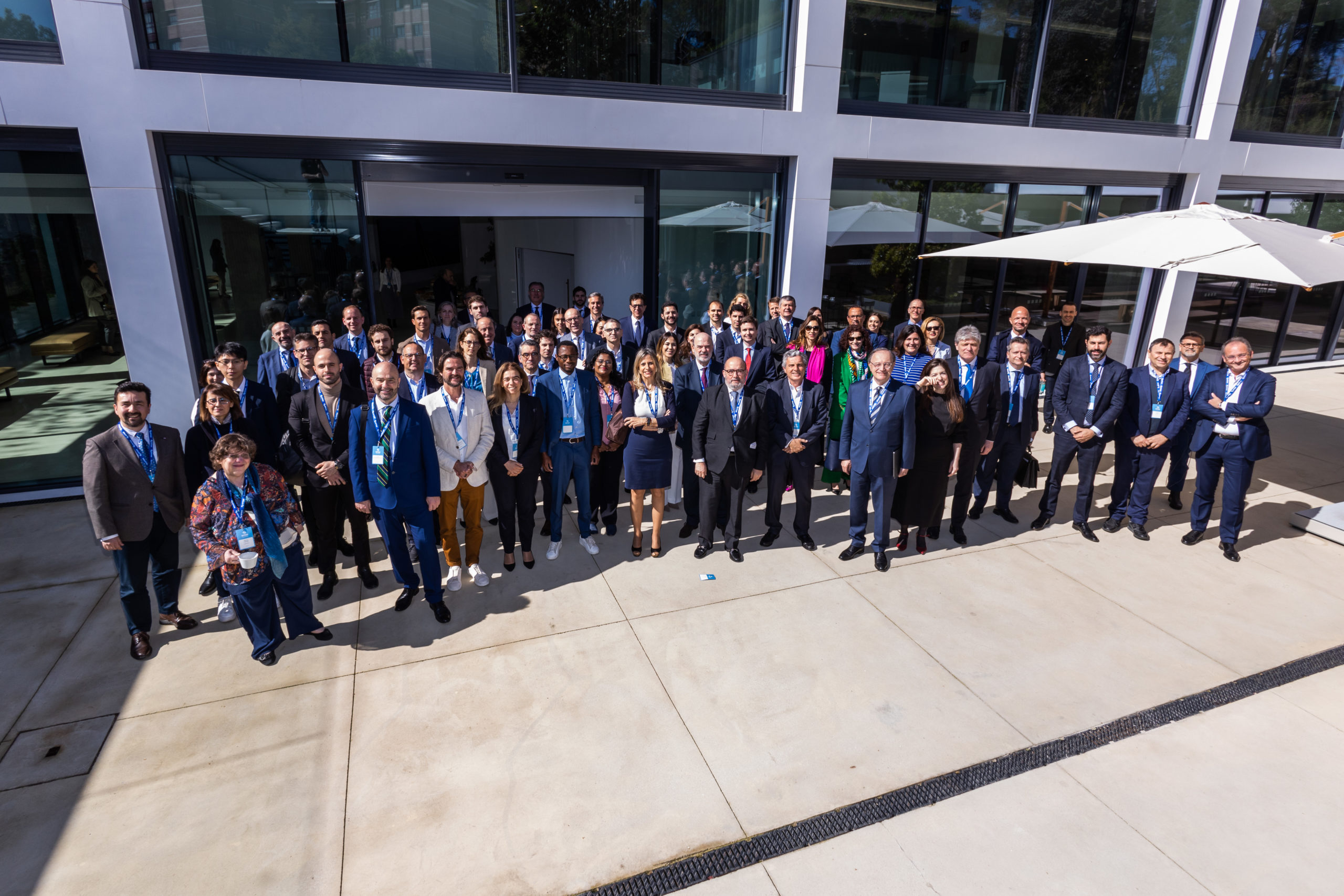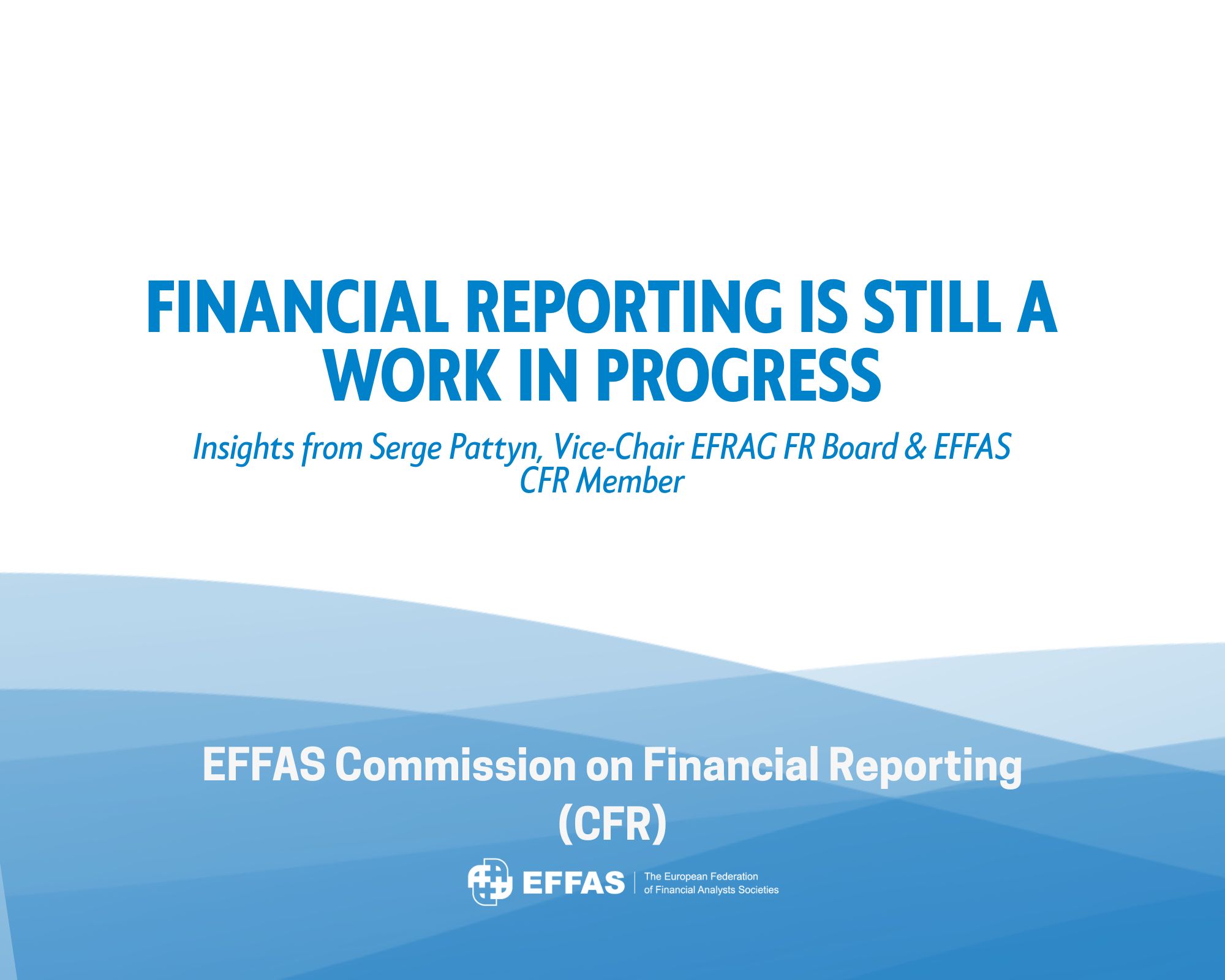The economic transformations driven by climate urgency present a significant challenge for professional analysts
- The first CESGA Congress, held on 4 April 2024 at the ACCIONA Campus in Madrid, and organized by EFFAS in collaboration with the Spanish Institute of Financial Analysts delved into the latest trends in sustainable finance and investment. It examined the new regulatory frameworks and emerging challenges and opportunities in the ESG (Environment, Social, and Governance) sector.
- Rodrigo Buenaventura, Chair of the National Securities and Markets Commission (CNMV): “The key is not to force capital into or away from “green” portfolios through regulation, but to allow the investors to express their preferences and empower those investors, asset managers and ESG analysts with proper, verified information to take their choices”.
- The Chair of the Spanish Institute of Financial Analysts, Lola Solana, the EFFAS member society in Spain and organization that provides the exclusive training in Spain to obtain the Certified ESG Analyst Certification (CESGA) title awarded by EFFAS: “We have always been at the forefront of ESG securities”.
- Jesús López Zaballos, chair of EFFAS: ” EFFAS has contributed to improve the integration of extra-financial data in classical investment methods”.
Madrid, April 4, 2024. In a world where sustainability has become central to the global agenda, CESGA, the training for financial analysts in Environmental, Social and Governance factors, emerges as an essential component to capitalize on the opportunities that this challenge presents to companies, investors and the market. This is one of the main conclusions reached at the first CESGA Congress organized by EFFAS.
The main objective of the event was to delve into the latest developments and trends in sustainable finance worldwide, as well as to examine new regulatory frameworks, innovative sustainable investment strategies and emerging challenges and opportunities in the ESG sector. The event brought together more than twenty speakers from different fields and more than 100 national and international leaders from the financial sector, analysis and the ESG world.
The day began with a welcome from ACCIONA’s Vice Chairman Juan Ignacio Entrecanales Franco. Then, the Chair of the Spanish Institute of Analysts, Lola Solana, highlighted the role of the entity she presides over, the body that issues the CESGA certificate exclusively in Spain, and emphasized the work carried out together with EFFAS. “The Spanish Institute of Analysts has always been at the forefront of ESG values, working side by side with EFFAS. We should be very proud and we should say loud and clear today that our CESGA certificate is a world leader. Thus, like any leader, we have a tremendous task and challenge to provide our financial community with the best ESG analysts and portfolio managers.”
Shortly after, the Chair of the European Federation of Financial Analysts Societies (EFFAS) and director of the Institute’s Foundation School, Jesús López Zaballos, highlighted that Spain was in third place worldwide in CESGA certificates, with 857 accredited in 2023, and has advanced that the figure of 7,500 CESGA graduates worldwide is expected to be reached in 2024.
Furthermore, the EFFAS Chair reviewed the history of the organization and highlighted its contribution to the financial world. “EFFAS has not only been instrumental in communicating the needs of capital market investment professionals to companies but has also provided practical advice in the form of key performance indicators and interactive data formats. EFFAS has thus contributed to improving the integration of extra-financial data into classic investment methods.”
Rodrigo Buenaventura, Chair of the Spanish Securities and Exchange Commission (CNMV), who gave the opening speech, emphasized the role of CESGA-certified analysts in accompanying investors with appropriate and verified information. “The key is not to force capital into or away from “green” portfolios through regulation, but to allow the investors to express their preferences and empower those investors, asset managers and ESG analysts with proper, verified information to make their choices”.
The Great Reallocation
The first session, titled ‘The Great Reallocation’, focused on the shift of capital investments towards institutions and projects that emit minimal greenhouse gases (GHG). In his talk, Álvaro Bau, partner at McKinsey in Spain, pointed out that this paradigm shift could lead to the largest allocation of capital in history to this type of asset. “Reaching the 1.5°C pathway will require the most significant reallocation of capital in history, from assets with high emissions to existing and new climate technologies,” Mr Bau highlighted’’.
Currently, approximately 65% of annual capital expenditure is allocated to high-emission assets. By 2050, it is estimated that this pattern will be reversed, with 70% of capital expenditures going to low-emission assets. Mr Bau has pointed out the privileged situation of the Iberian Peninsula to walk towards this transition. “Spain and Portugal enjoy some natural resources, the cheapest solar energy and a well-developed infrastructure, among others, that place us in a privileged position. It is necessary to take advantage of this opportunity and reindustrialize the country.”
Landscape of Sustainable Investment in Europe
The second session of the day was dedicated to the current sustainable investment landscape in Europe, marked by transformational factors such as new regulations being implemented, growing environmental awareness, technological advances, and complex socio-economic and political dynamics.
During the debate, moderated by Friedrich Mostboeck, Chair of ÖVFA and Deputy Chair of EFFAS, which featured Aleksandra Palinska, executive director of Eurosif, Arthur Krebbers, Managing Director and Head of Corporate Climate and ESG capital Markets at Natwest Market CIB and Pablo Perez-Montero, Global Head of Sustainable Finance and ESG Advisory at CaixaBank CIB. The experts acknowledged that, after five years of significant development in the ESG finance industry, they are navigating this landscape by adapting to evolving regulatory frameworks. “Sustainable investing is no longer about doing good, but about proper risk management and a business value proposition,” stressed Aleksandra Palinska, Executive Director of Eurosif.
New Corporate Disclosure Regulation, a Landmark in Sustainable Finance?
In the third session of the day, entitled ‘New corporate disclosure regulation, a landmark in sustainable finance?’ the main theme was how 2024 looks set to be a groundbreaking period in Europe due to the implementation of legislation that will mark a major change in sustainable finance. The two guests of this session were introduced by Frank Klein, Senior Coverage Specialist Institutional, Corporate Clients and Multinationals Sales at DWS International, as well as co-chair of the EFFAS Commission on ESG.
Patrick de Cambourg, Chair of the EFRAG Sustainability Reporting Board, focused his speech on emphasizing the work of the organization, which is committed to promoting ESRS (European Sustainability Reporting Standard) training and qualification to help the industry. ‘’The goal is to organise a second pillar of standardised corporate reporting alongside financial reporting on an equal footing and therefore to provide quality sustainability related information to capital markets and other stakeholders to avoid green or ESG washing and to foster the creation of a single harmonised and reliable data platform (both in human readable and digital formats).’’
Furthermore, Isabelle Grauer-Gaynor, Head of Unit, Corporate Finance and Reporting Investor Protection and Sustainable Finance at ESMA “The journey to bring sustainability reporting to the same quality level as financial reporting is a collective endeavour where each stakeholder, whether issuer, assurance provider, supervisors, users and NGOs have a role to play, and dialogue is essential.”
Innovation Across Asset Class Trends in ESG Valuation and Research: Fixed Income.
The discussion between Sean Kidney, CEO and founder of Climate Bonds Initiative, and Hans Buysse, Chair of EFRAG, focused on innovative fixed income trends in sustainable finance, with a special focus on the market outlook in 2024.
The two experts said that an increase in new debt labels and advanced sustainable finance frameworks is expected, marking the maturity of the market. “In the last few years, we have seen the beginning of major changes around climate policy. The world is changing. Finance professionals need to be aware of the challenges and the opportunities that these changes are opening.”, Sean pointed out. This is a key trend for 2024, with professionals gaining experience and investors increasingly valuing sustainability in fixed income instruments, fostering innovation in sustainable finance, and opening opportunities for companies in novel sectors and structures.
Trends in ESG Valuation and Research: Equity
In this session, entitled ‘Trends in ESG valuation and research: Equity’, Gonzalo Rengifo Abad, Head of Distribution for Iberia and Latin America at Pictet Asset Management, addressed in his speech the shift in ESG valuation and research, focusing on equity investments.
He highlighted the growing symbiotic relationship between equity investors and companies with strong ESG credentials. Gonzalo referred to recent research highlighting the strategic value of sustainability to stand out in the market: ‘’ESG Data is the backbone of any regulatory industry. Industry and regulators have to make the walk together. We are focused now on climate change, but the upcoming land for EGS will be biodiversity, which includes also social empowerment.’’
Another interesting point that Mr Rengifo Abad focused on was how equity firms are responding with significant investments in ESG capabilities, team building and improving performance in areas such as net zero targets, sustainability governance and positive impact strategies.
The Future of the ESG Analyst
In this last session, Prof. Dr. Alexander Bassen, CESGA’s Academic Director together with Susana Peñarrubia Fraguas, Head of ESG Integration & ESG Investment Manager, Active and Head of Responsible Investment Research and CIO at DWS Investment; and Teresa Royo Luesma, Sustainability and Governance Partner at KPMG Spain, analysed the future role of ESG analysts, focusing on the skills required and how the growing demand is shaping a constantly evolving profession.
With the growing recognition of the importance of sustainable business practices, the demand for ESG professionals is experiencing exponential growth in various industries. As Alexander Bassen pointed out: “We are on our way, but ESG is not mainstream. We need more education for a broader audience in the financial community. On a company level, integration of the ESRS needs to be more than a compliance exercise, it’s a strategic opportunity”.
The evolution of ESG Practices and the Empowerment of CESGA Certifications
Over the past 10 years, the CESGA has become the benchmark for ESG training for analysts. With more than 6,000 accredited professionals in 20 countries, this certification is one of the pillars of development and influence of national societies of financial analysts.
After the opening speech from Rodrigo Buenaventura (CNMV), the day was divided into six sessions in which the focus was set on two central themes: the evolution of ESG practices in the financial sector and the empowerment of CESGA-certified professionals.
About EFFAS
EFFAS is a Not-for-profit organisation set up in 1962 with 14 national member associations in Europe, representing more than 16,000 Financial analysts, Asset managers, pension fund managers, corporate finance specialists, risk managers, treasurers among many other professional profiles from the investment profession. EFFAS is a certification body for finance with over 24,400 certificate holders worldwide. https://effas.com/






